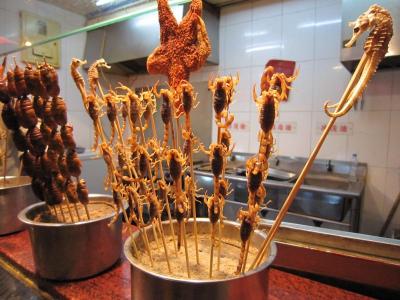The second day among enthusiastic entomologists, business men and policy makers brought new insights to the existing EU regulations.
Sirkku Heinimaa and Wolfgang Trunk of the European Commission – Health and Consumers Directorate-General outlined the limitations of the ideas presented at the conference – the use of insects in animal feed production, for human consumption or as added value organic waste management strategy – under the existing legal framework.
However, the apparatus seems to be gaining momentum and interestingly enough, tendencies show that insect proteins will appear on our tables even before they are being fed in our stables. We of course want to see insects becoming the new Sushi soon but why the complications of turning them into feed? To put it in the words of David Drew, Managing Director of AgriProtein RSA: “It is absolutely absurd not to allow chicken to eat insects, which is their natural diet, but feed them with fish instead, an animal they never meet in nature”.
 Food stand on Wangfujing Street in Beijing
Food stand on Wangfujing Street in Beijing
To feed evidence into this discussion, one whole session stood under the light of food and feed safety where one of the bloggers, Cecilia, demonstrated an impressive way that not only can she write but also talk (in public). The presentation about the inactivation of Salmonella by Black Soldier Fly feeding activity was followed with great interest. Other talks concerned the sanitization potential of the House Fly and the heavy metal uptake by termites feeding on dumpsites in Nigeria. An insight to the mechanisms behind the inactivation of pathogens when using insects for waste treatment (it was something about enzymes and competing bacteria) summed up the topic.
By the way: today´s insect snack was a delicious and full bodied grasshopper salad.
The best quote of the day: Question: Have you fed the larvae with human biosolds? Presenter: Human biosolids? You mean shit?!!
Day One at the City of Insects
Cecilia Lalander, Institutionen för energi och teknik, Sveriges landbruksuniversitet, Sweden
Stefan Diener, Department for Water and Sanitation in Developing Countries (Sandec), Eawag, Switzerland.